There IS a Code of Ethics for Hypnotherapists to
Follow
For those who just don't seem to have a
clue (nor integrity or morals)
HypnosisReality.com, Feb 5, 2020
Despite the outrageous number of
hypnosis abuse cases and debauchery listed on this website, it needs
to be noted that there are guidelines for all hypnotherapists to
follow. The problem arises when the hypnotherapist dismisses these out
of hand and summarily wishes to follow his own (im)moral compass. The
ethical guidelines below are just that... "guidelines." There
really is no teeth behind these to threaten an immoral hypnotist with.
The only real legal authority is the law. With that said, here are some of
the major hypnosis associations and their ethical guidelines.
The National Guild of
Hypnotists (NGH)
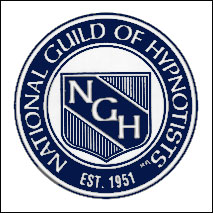 In
fact, the second guideline mentioned falls under the category of Client
Safety. It reads, "Members shall not engage
in verbal, physical or sexual abuse of any client and shall not
discriminate against any client on the basis of race, religion, sexual
orientation or gender identity. With all due respect this
should be split into two separate guidelines because sex abuse and discrimination
are 180-degrees from each other. They are wholly different issues unto themselves and as such need
to be expressed with the respect they deserve, so as to give proper
gravity and due deference to each concern. (Read
more...) In
fact, the second guideline mentioned falls under the category of Client
Safety. It reads, "Members shall not engage
in verbal, physical or sexual abuse of any client and shall not
discriminate against any client on the basis of race, religion, sexual
orientation or gender identity. With all due respect this
should be split into two separate guidelines because sex abuse and discrimination
are 180-degrees from each other. They are wholly different issues unto themselves and as such need
to be expressed with the respect they deserve, so as to give proper
gravity and due deference to each concern. (Read
more...)
The International Society of Hypnosis (ISH)
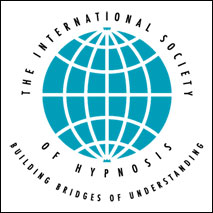 This
organization says nothing at all about sexual assault or client abuse
whatsoever. Perhaps the only two rules offered would be the following
ISH guidelines: This
organization says nothing at all about sexual assault or client abuse
whatsoever. Perhaps the only two rules offered would be the following
ISH guidelines:
1.1. All ISH members are
professionals in their own right, and, in their use of hypnosis, they
should adhere strictly to the standards required of them by their own
profession.
1.2. When using hypnosis, ISH Members should always give priority to the
welfare of the patient in clinical settings, as well as of the subject
involved in scientific research experiments.
American Society of Clinical Hypnosis (ASCH)
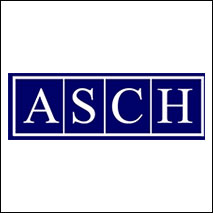 Another
organization that essentially says nothing about sexual abuse or improper
sexual relationships with a client. The only caution that appears in the
ASCH guidelines seems to come in the form of a moral suggestion on
responsibility: Another
organization that essentially says nothing about sexual abuse or improper
sexual relationships with a client. The only caution that appears in the
ASCH guidelines seems to come in the form of a moral suggestion on
responsibility:
Members accept responsibility for, and when
necessary the consequences of, their behavior;
The American Council of Hypnotist Examiners (ACHE)
An organization that does take note to prohibit any
client sexual relationships in their
ACHE rules:
12. I will not engage in intimate
social contact with a client until a period of at least two years from the
final session with that client.
The National Hypnotherapy Society (NHS)
 Here
is an organization that lays their guidelines out explicitly. The
NHS ethical guidelines under the section of Client Welfare
states: Here
is an organization that lays their guidelines out explicitly. The
NHS ethical guidelines under the section of Client Welfare
states:
Refrain from using their position of trust and
confidence to:
Cross the commonly understood professional
boundaries appropriate to the therapist/client relationship or exploit the
client emotionally, sexually, financially or in any other way whatsoever.
Should any relationship (i.e. other than the professional relationship
between therapist and client) develop between either therapist and client
or members of their respective immediate families, the therapist must
immediately cease to accept fees, terminate the hypnotherapy relationship
in an appropriate manner and refer the client to another suitable
therapist at the very earliest opportunity. N.B. Clarification on dilemmas
experienced by therapists in respect of the foregoing should be sought
from their supervisor.
Touch the client in any way that may be open to misinterpretation. N.B.
Before using any touch as a component of hypnotherapy, both an explanation
should be given and permission received.
The Society for Clinical and Experimental
Hypnosis (SCEH)
 The
Society for Clinical and Experimental Hypnosis (SCEH) is dedicated to the
clinical and scientific utilization of hypnosis at the highest
professional level. The history of hypnosis and its use call for some
basic principles to maintain high standards for responsible professional
workers. In addition, the multidisciplinary character of the professional
membership of SCEH requires an explicit statement of the ethical
guidelines to which members of SCEH are required to subscribe and adhere.
The code of
ethics states the following: The
Society for Clinical and Experimental Hypnosis (SCEH) is dedicated to the
clinical and scientific utilization of hypnosis at the highest
professional level. The history of hypnosis and its use call for some
basic principles to maintain high standards for responsible professional
workers. In addition, the multidisciplinary character of the professional
membership of SCEH requires an explicit statement of the ethical
guidelines to which members of SCEH are required to subscribe and adhere.
The code of
ethics states the following:
The National Council for Hypnotherapy (NCH)

The UK's National Council for Hypnotherapy makes no
explicit mention of sexual assault or even sexual relationships with
clients. The following
ethical guidelines are probably the only guidelines that might
apply... 3. You must
maintain high standards of personal conduct.
You must keep high standards of personal conduct, as well as
professional conduct. You must not do anything that may affect
someone’s treatment by or confidence in you.
If you are convicted of a criminal
case or have accepted a Police caution, the NCH must be informed. Each
case will be considered individually and a decision made in the light
of the circumstances of the case. Your membership may be at risk if
you are convicted of a criminal offence that involves, for example,
one of the following types of behaviour:
• Violence
• Abuse
• Sexual misconduct
• Supplying drugs
• Drink-driving offences where someone was hurt or killed
• Serious offences involving dishonesty
• Any serious criminal offences for which you received a prison
sentence.
13. You must carry out your duties in a professional and ethical way
You must carry out your duties and responsibilities in a professional
and ethical way. Patients, clients and users are entitled to receive
good and safe standards of practice and care. The NCH seeks to protect
the public from unprofessional and unethical behaviour, and to make
sure that registrants know the standards expected of them.
14. You must behave with
integrity and honesty.
You must make sure that you behave with integrity and honesty and keep
to high standards of personal and professional conduct at all times.
The Council of Professional Hypnosis Organizations (COPHO)
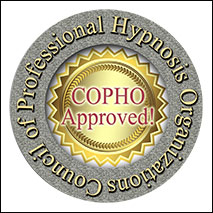 The
Council of Professional Hypnosis Organizations (COPHO) advocates the
following
Code of Ethics and Standards of Practice of Hypnosis.
Organizations are urged to encourage their own Members to voluntarily
conform. The
Council of Professional Hypnosis Organizations (COPHO) advocates the
following
Code of Ethics and Standards of Practice of Hypnosis.
Organizations are urged to encourage their own Members to voluntarily
conform.
The International Medical & Dental Hypnotherapy Association (IMDHA)
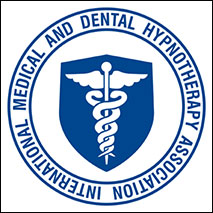 The
International Medical & Dental Hypnotherapy Association (IMDHA)
follows the
COPHO Code of Ethics and Standards of Practice of Hypnosis.
Members are asked to voluntarily conform. The
International Medical & Dental Hypnotherapy Association (IMDHA)
follows the
COPHO Code of Ethics and Standards of Practice of Hypnosis.
Members are asked to voluntarily conform.
|

 In
fact, the second guideline mentioned falls under the category of Client
Safety. It reads, "Members shall not engage
in verbal, physical or sexual abuse of any client and shall not
discriminate against any client on the basis of race, religion, sexual
orientation or gender identity. With all due respect this
should be split into two separate guidelines because sex abuse and discrimination
are 180-degrees from each other. They are wholly different issues unto themselves and as such need
to be expressed with the respect they deserve, so as to give proper
gravity and due deference to each concern. (
In
fact, the second guideline mentioned falls under the category of Client
Safety. It reads, "Members shall not engage
in verbal, physical or sexual abuse of any client and shall not
discriminate against any client on the basis of race, religion, sexual
orientation or gender identity. With all due respect this
should be split into two separate guidelines because sex abuse and discrimination
are 180-degrees from each other. They are wholly different issues unto themselves and as such need
to be expressed with the respect they deserve, so as to give proper
gravity and due deference to each concern. ( This
organization says nothing at all about sexual assault or client abuse
whatsoever. Perhaps the only two rules offered would be the following
This
organization says nothing at all about sexual assault or client abuse
whatsoever. Perhaps the only two rules offered would be the following
 Another
organization that essentially says nothing about sexual abuse or improper
sexual relationships with a client. The only caution that appears in the
Another
organization that essentially says nothing about sexual abuse or improper
sexual relationships with a client. The only caution that appears in the
 Here
is an organization that lays their guidelines out explicitly. The
Here
is an organization that lays their guidelines out explicitly. The
 The
Society for Clinical and Experimental Hypnosis (SCEH) is dedicated to the
clinical and scientific utilization of hypnosis at the highest
professional level. The history of hypnosis and its use call for some
basic principles to maintain high standards for responsible professional
workers. In addition, the multidisciplinary character of the professional
membership of SCEH requires an explicit statement of the ethical
guidelines to which members of SCEH are required to subscribe and adhere.
The
The
Society for Clinical and Experimental Hypnosis (SCEH) is dedicated to the
clinical and scientific utilization of hypnosis at the highest
professional level. The history of hypnosis and its use call for some
basic principles to maintain high standards for responsible professional
workers. In addition, the multidisciplinary character of the professional
membership of SCEH requires an explicit statement of the ethical
guidelines to which members of SCEH are required to subscribe and adhere.
The 
 The
Council of Professional Hypnosis Organizations (COPHO) advocates the
following
The
Council of Professional Hypnosis Organizations (COPHO) advocates the
following
 The
International Medical & Dental Hypnotherapy Association (IMDHA)
follows the
The
International Medical & Dental Hypnotherapy Association (IMDHA)
follows the